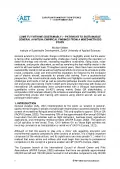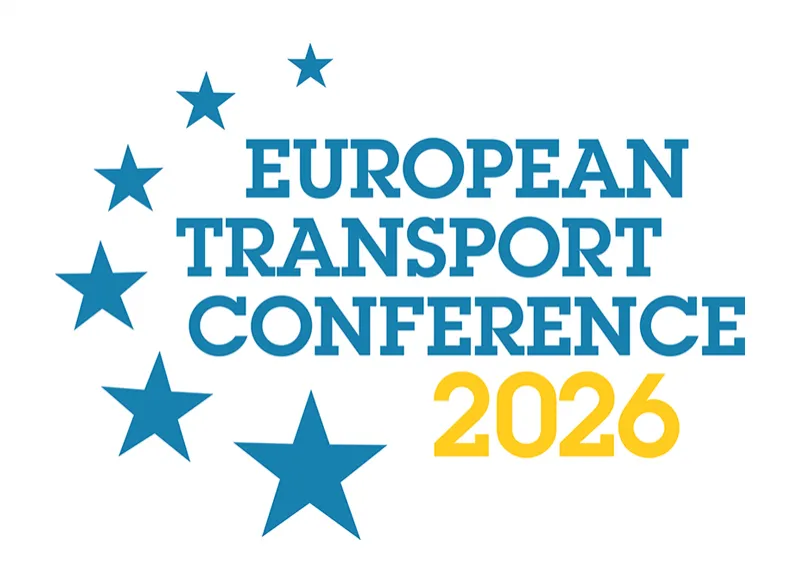-
Past ETC Papers

Browse, search and view papers from the past AET Conferences.
-
Members' Area

AET promotes networking and exchange of ideas, information and opportunities amongst members.
Conference Papers 2022
Milan, Italy
ETC Conference Papers 2022
Come Fly with Me (Sustainably) – Pathways to Sustainability in General Aviation: Empirical Findings from a Mixed-Methods Study on Recreational General Aviation
Seminar
Day 2 (8 Sep 2022), Session 5, CITIES MOVED BY SUSTAINABLE TRANSPORT, 12:00 - 13:30
Status
Accepted, documents submitted
Submitted by / Abstract owner
Michael Stiebe
Authors
Michael Stiebe
Short abstract
While commercial aviation was struck by Covid-19, General Aviation (GA) has flourished. Drawing on a mixed-methods study, this paper presents current sustainability trends, measures, and feasible future decarbonization pathways in Recreational GA.
Abstract
Along with most discussions regarding the sustainable mobility transition, usually pertaining to the predominant automotive, car-centric mobility paradigm, an ever-growing focus has been placed on aviation and has put the industry in a central place of the (un)sustainable transport debate due to its noteworthy carbon footprint, which however accounts for “only” 3.5% of all human-induced CO2e emissions (i.e., 12% of all transport-related CO2e emissions) (ATAG 2020; Our World in Data, 2020). The recently (2017) coined concept of flygskam (Swedish: “Flight Shame”) and its later counterpart tågskryt (Swedish: “Train Brag”) have penetrated social and popular media for quite some time until the onset of the Covid-19 pandemic and the associated drastic decline in global aviation passenger numbers. Simultaneously, general aviation has noticeably flourished throughout the Covid-19 pandemic.
General Aviation (GA) is defined by the International Civil Aviation Organization (ICAO) defines GA as “all civil aviation operations other than scheduled air services and non-scheduled air transport operations for remuneration or hire” and includes, among many other activities, business aviation, sightseeing and tours, private pilot training, and recreational flying. The latter two activities, namely private pilot training and recreational flying, constitute the central theme of the research project (study period: February to June 2022) seeking to investigate existing decarbonization and sustainability efforts, as well as further potential pathways towards more sustainable GA operations.
Unlike commercial aviation, private pilot training and recreational general aviation (RGA) have been mostly “flying under the radar” of scholarly investigation regarding sustainability aspects. This does not mean that there are no sustainable development efforts in GA, but the challenges and possibilities/alternatives are different from those in commercial aviation. To give a few examples, in comparison to kerosene jet fuel there currently is not an economically feasible or widely available fuel alternative to the commonly used AVGAS 100(LL). Furthermore, airplane fleets in flight clubs and typically used aircraft for Private Pilot License (PPL(A)) training (often preference of cheap, robust, no-frills planes, e.g., Cessna 172, Piper PA28, etc.) can be quite old and thus not the most fuel-efficient or modern ones. Basic PPL(A) training in Switzerland requires a minimum of 45 flight hours of which a good deal involves very short flights or circuit training with EET (estimated en route time) < 1:00h.
The author is actively engaged in RGA, and the flight club (Fluggruppe Sarnen-Kägiswil, FGSK) at Airfield Sarnen-Kägiswil (ICAO: LSPG) has, like an increasing number of other flight clubs/schools (e.g., Elektroflugschule Schänis CH, Green Flight Academy Skellefteå SE), been investing increased efforts into more sustainable GA operations, by for instance getting a fully electric airplane, i.e., Pipistrel Velis Electro (first fully EASA-licensed (2020) motor airplane), for the abovementioned basic training part in the PPL(A) training to provide a more sustainable and quiet operation. Especially, noise emission reduction is very important in densely populated areas like Switzerland. Nevertheless, the electrification of aviation has been facing significant engineering limitations concerning energy density and battery weight so that short endurances and low max. take-off weight/load/passengers restrict the utility of such light electric aircraft to very specific parts of the training syllabus or leisure flights. To this day, there is no comprehensive carbon footprint analysis of PPL(A) training on commonly used training planes. Furthermore, RGA and PPL training as parts of a socio-technical (leisure) mobility system are far beyond just technological challenges. It is also important to look at the attitudes, opinions, acceptance rates, and critical as well as constructive thoughts of private pilots, flight instructors, student pilots and airfield operators and find out what role sustainability and sustainable development are playing in the strategic planning, pedagogical (e.g., sustainability or fuel-efficient, noise-reduced flying lectures in PPL theory classes) and decision-making processes of various actors.
The author has direct access to the field to conduct comprehensive, empirical, mixed-methods research entailing 1) a meticulous carbon footprint analysis for two to three commonly used small airplanes in PPL(A) instruction based on certified Swiss flight school curricula and actual flight logs of former PPL(A) students, 2) semi-structured in-depth interviews with key stakeholders in RGA (e.g. airfield/airport and flight club managers, flight instructors, private pilots) and 3) a quantitative multiregional survey among aforesaid key stakeholders.
Through the triangulation of qualitative and quantitative data including opinions, views, acceptance rates, concerns, and aspirations of key stakeholders as well as an analysis of sustainability-oriented trends in GA, this paper will give insights into current sustainability measures, efforts, trends, in RGA and elaborate on potential future sustainability pathways in RGA.
Programme committee
Young Researchers' and Practitioners' Forum
Topic
The future of aviation: compatibility of recovery and sustainability
Documents:


Association For
European Transport
Forester House
Doctors Lane
Henley-in-Arden
Warwickshire, UK
B95 5AW
+44 (0) 15 64 793552
VAT number: 710 1866 64
Conference Supporters & Endorsers




Legal Entity
The Association for European Transport is registered as an Association ('vereniging') with the Chamber of Commerce for Haaglanden in The Netherlands under company number 27170096.
Built on Zenario




